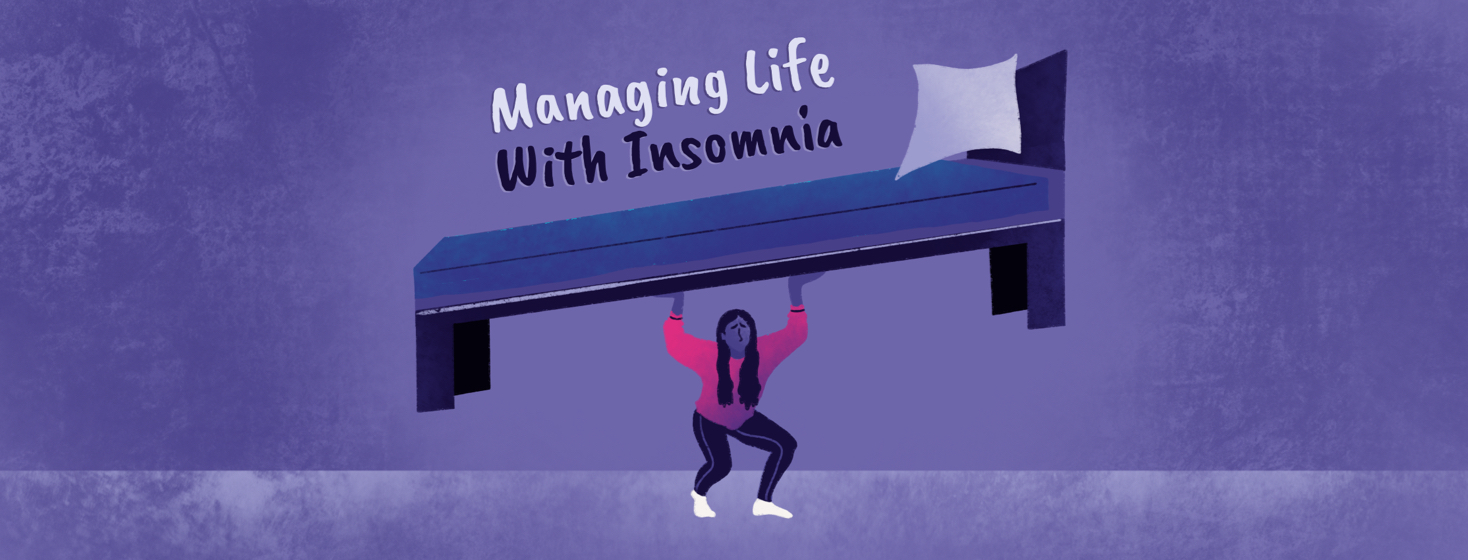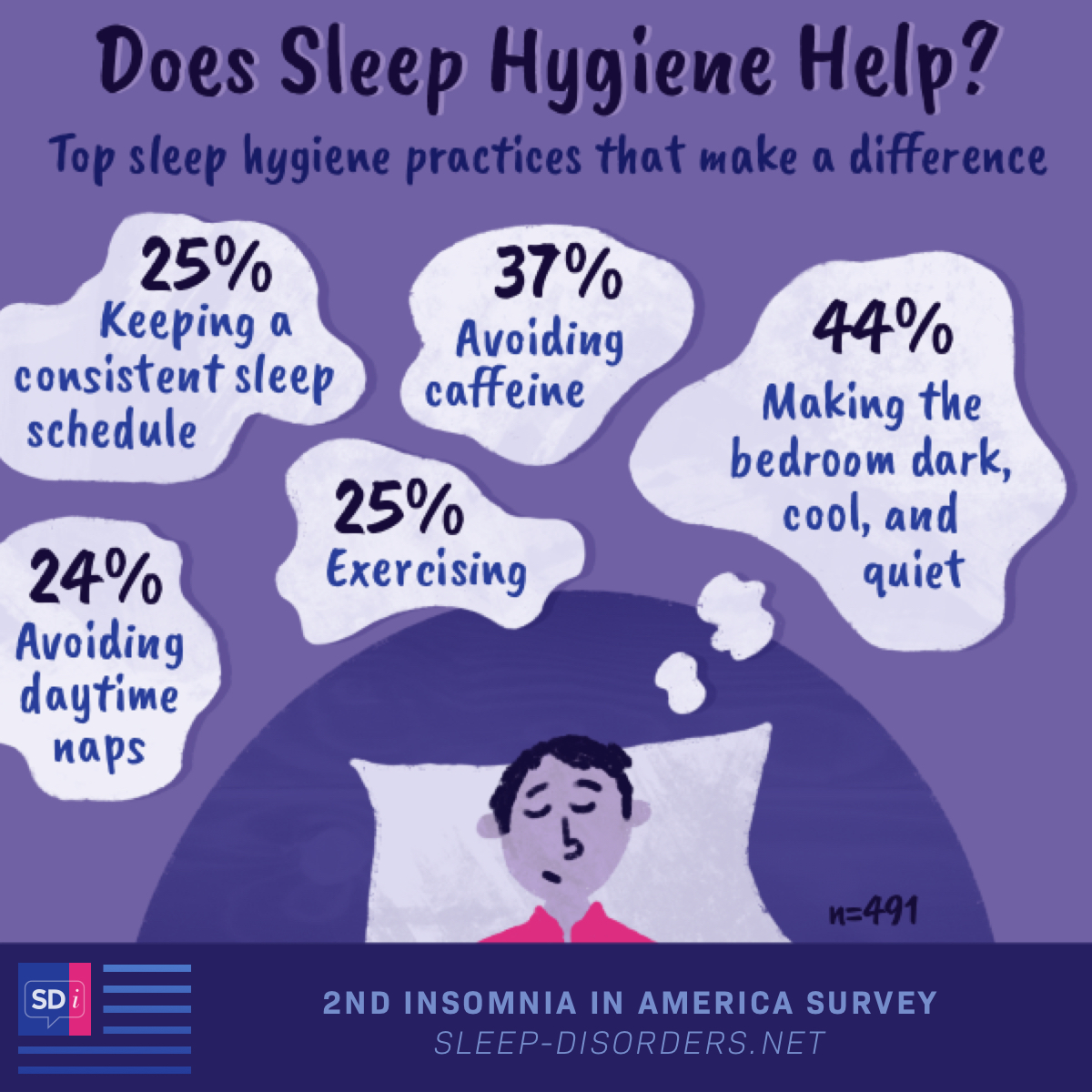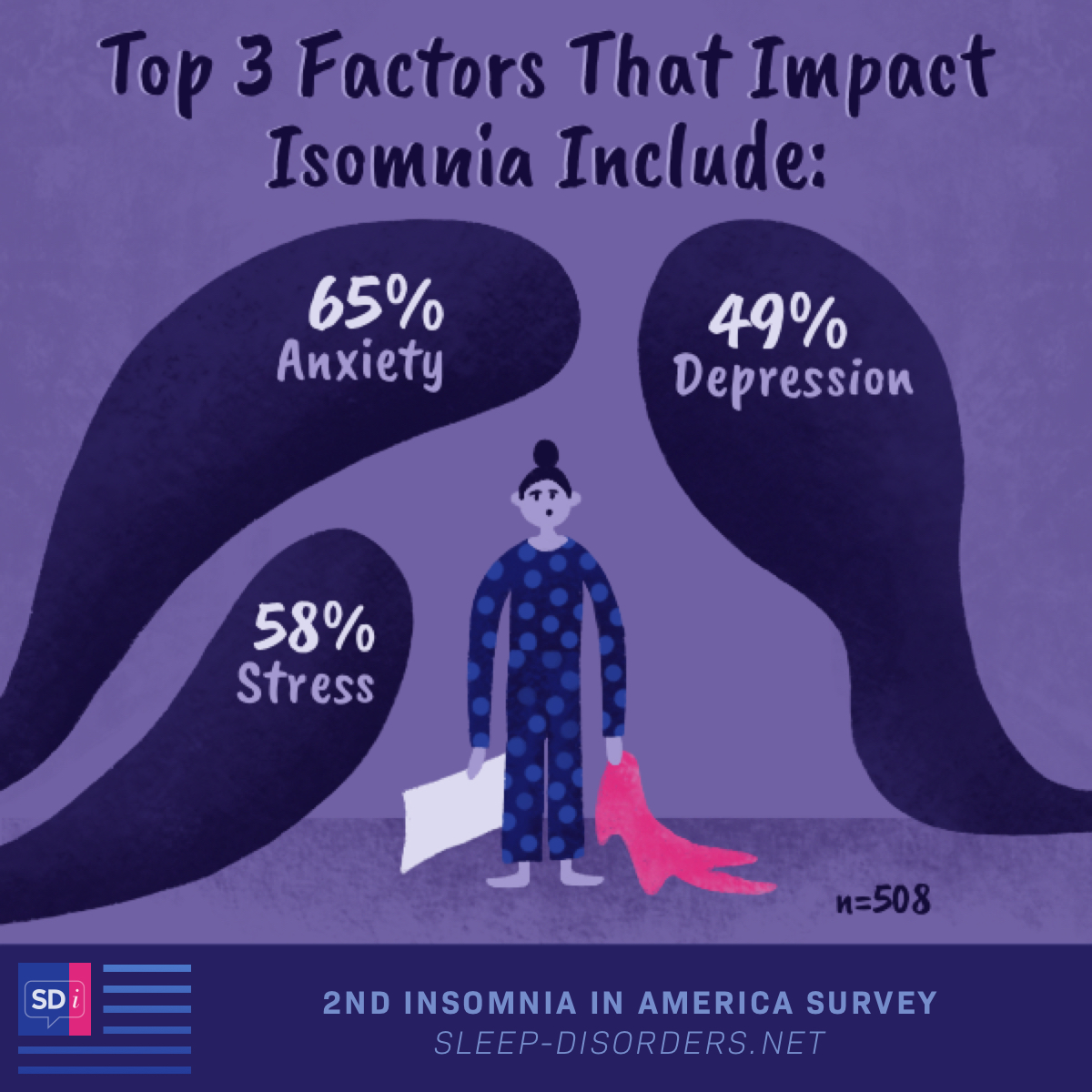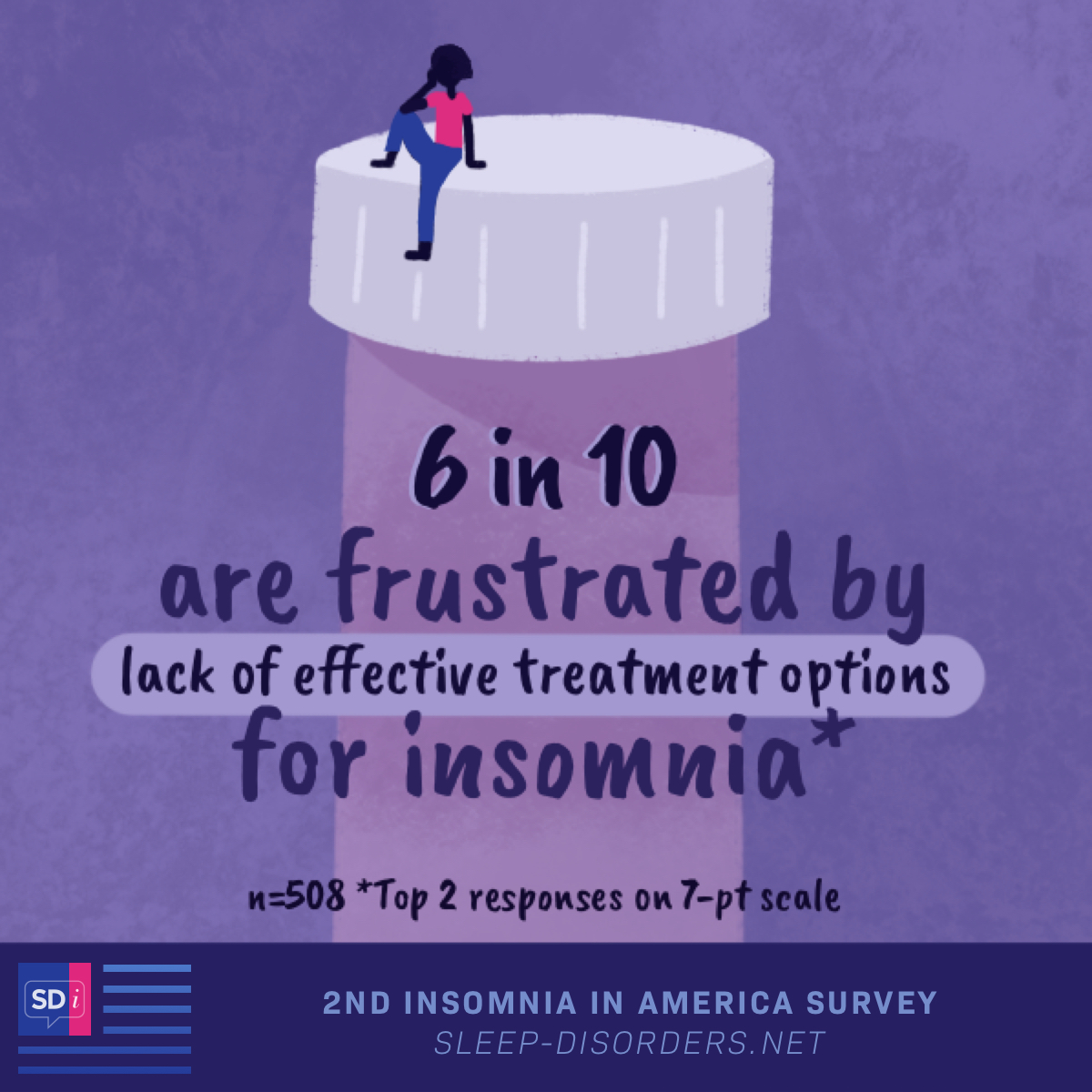Pulling Back the Covers: The Truth About Living With Chronic Insomnia
When you tell someone you have insomnia, you are likely met with a sympathetic nod. Most people would say they know what insomnia is. Some may even tell you they experience it too. But how many people truly understand how deeply insomnia affects daily life?
In our 2nd Sleep Disorders In America Survey, more than 500 respondents opened up about struggles falling or staying asleep, feelings about sleep hygiene, factors that impact their insomnia, and views on treatment. Most people surveyed – 82 percent – live with chronic insomnia. This means they experience insomnia at least 3 times a week for 3 months or longer.
Difficulty falling and staying asleep
For some people, insomnia means they have trouble falling asleep. Even when physically and mentally exhausted, when they lie in bed, sleep does not come. More than 75 percent of people surveyed have difficulty falling asleep, and respondents’ average time to fall asleep is 2.4 hours.
To make matters worse, for many people with insomnia, staying asleep is impossible. Responses show 97 percent of people surveyed wake up at least once during the night, and 64 percent say they wake up 3 or more times.
Without a good night’s sleep, it is no surprise that nearly 7 out of 10 people surveyed experience excessive daytime sleepiness.
Sleep hygiene is not enough
Ask anyone with chronic insomnia about sleep hygiene, and you will most likely learn that they are already experts on good sleep habits. A vast majority – 97 percent of people surveyed – practice some type of sleep hygiene. Unfortunately, practicing good sleep hygiene is often not enough to prevent or stop chronic insomnia.
The most common sleep hygiene practices that people have tried include:
- Making the bedroom dark, cool, and quiet (80 percent)
- Avoiding caffeine (74 percent)
- Avoiding daytime naps (66 percent)
- Keeping a consistent sleep schedule (63 percent)
- Avoiding eating close to bedtime (58 percent)
- Avoiding alcohol close to bedtime (56 percent)
- Avoiding mobile devices close to bedtime (51 percent)
- Exercising (51 percent)
Why insomnia is so hard to control
When we have a health issue with a clear cause, it makes it easier to come up with a game plan for treatment. But with insomnia, the factors that keep it coming back night after night are hard to pinpoint and even harder to treat.
The relationship between insomnia and mental health is complicated. Chronic insomnia can take a toll on mental health, and mental health issues can make it harder to get quality sleep.
The good news is that you can take steps to improve your mental health and your insomnia at the same time. Talk with your doctor to come up with a treatment plan that is right for you.
Not enough treatment options
Treatments for insomnia include:
But despite these options, fewer than 10 percent* of people surveyed feel their insomnia is well-controlled by their current treatment plan.
There is resiliency within the insomnia community, and the search for consistent, quality sleep continues on. Survey responses show 4 in 10* plan to talk to their doctor about changing or adding to their treatment plan in the near future.
Tell us your story
No one has to live with insomnia alone. Our community advocates and members understand what it feels like to lie awake night after night. They know the struggle of getting through a day with no sleep. They know how hard it is to fully explain what insomnia means.
Together, we support each other, and we want to know: What is your insomnia story?
The 2nd Sleep Disorders In America Survey was conducted online from May through August 2021. Of the 1,890 people who completed the survey, 508 were insomnia respondents.
*Top 2 responses on 7-pt scale




Join the conversation